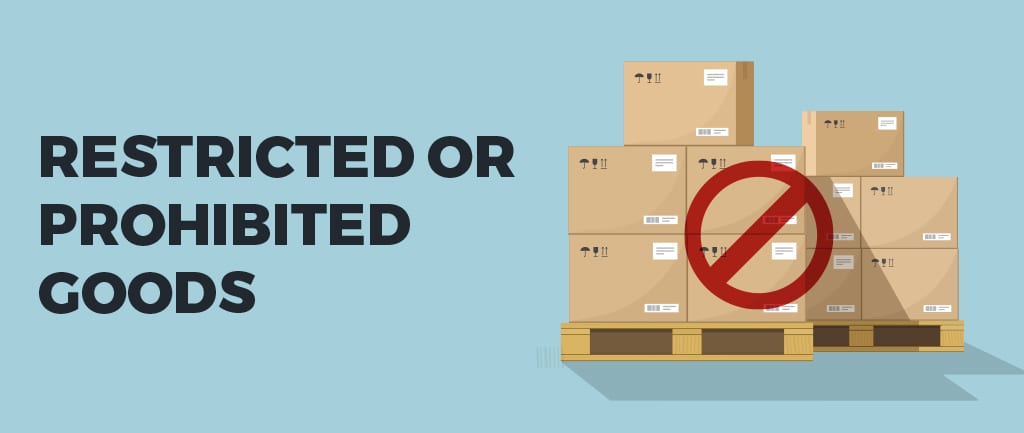Restricted or prohibited goods
Many people think that anything can be posted or sent for delivery as long as it can fit into a box or package. This is not actually the case, as there is a list of goods which fall into the category of restricted or prohibited goods. These are ones where limitations are placed upon their sending through the delivery network. It is easy to get caught out too, because there is a growing list of things you wouldn’t expect to fall under this. Our latest blog post explores this in more detail.
Why are some goods restricted?
Generally something becomes a restricted or prohibited item if it is for health and safety reasons. Sending certain items can be dangerous to anyone who comes into contact with or handles the package. This would apply more and be of greater concern if the item becomes damaged, and leaks or gets broken for example. Often, the restriction or prohibition of items is covered by legislation, so delivery companies need to ensure they comply with the law.
Whose responsibility is it?
The responsibility to check for restricted goods lays with the sender. Bear in mind that the rules can be different depending on whether you are sending something through the postal system, privately through a courier, or internationally, as every countries rules are different. If in doubt, check!
What will happen if I don’t declare?
Many companies reserve the right to deal with undeclared restricted or prohibited goods as they see fit, having regard for health and safety circumstances. This can include (but not be limited to,) the delay of arrival of items, items opened for inspection, investigated, or even destroyed.
Give me some examples?
When it comes to restricted or prohibited goods it is often common sense. All items such as ammunition, biological substances (e.g. blood,) corrosives, explosives, flammable items etc, have heavy if not total restrictions on their sending. This is definitely not an exhaustive list!
Less common examples
There are actually plenty of innocent and everyday items which can fall into restricted or prohibited goods for sending, so great care is needed. Examples include:
Nail varnish, perfume or aftershave, aerosols (e.g. body deodorant,) certain foods, batteries etc.
What is the difference between restricted and prohibited goods?
Some people think they mean the same thing, and although they are similar there is actually a difference:
Prohibited items cannot be sent.
Restricted items can be sent in certain circumstances.
This is why it is important to actually check what you are sending, because you may still be able to send so long as certain factors are met.
Are valuable, breakable or fragile items restricted or prohibited?
This depends on what they actually are (subject to the lists,) but these items are not of themselves restricted or prohibited. Instead, because they have a higher chance of damage, it is wise to ensure they are packed more securely and that you purchase additional cover when sending, in case of damage.
How does this affect me sending parcels with Rock Solid Deliveries?
If you are unsure whether you can send your items, just like you would before sending through anyone else, it is best to check with us first. Chances are we can help, since we are a private courier service. One of our areas of expertise is medical couriers for example, so we have delivered everything from samples to tablets. We just need to know what we are dealing with before, so we can take any steps to protect us, our staff and you and your parcel.
We specialise in same day courier services. To find out more, click the dedicated link now. Message, email or call us for any questions or to ask for a quote.
Instant Quote - Call us now!
Call us today and we can get you a quote immediately. We will guarantee pick up of your parcel in 60 minutes or less.
Call us now: 0800 999 8220


